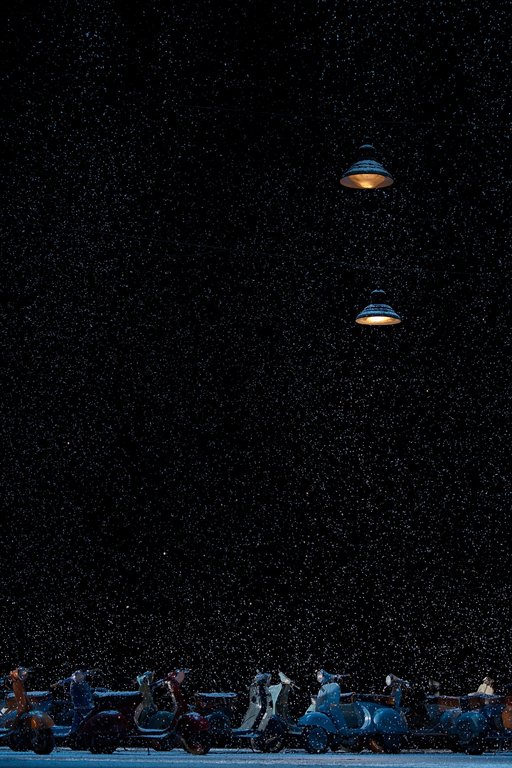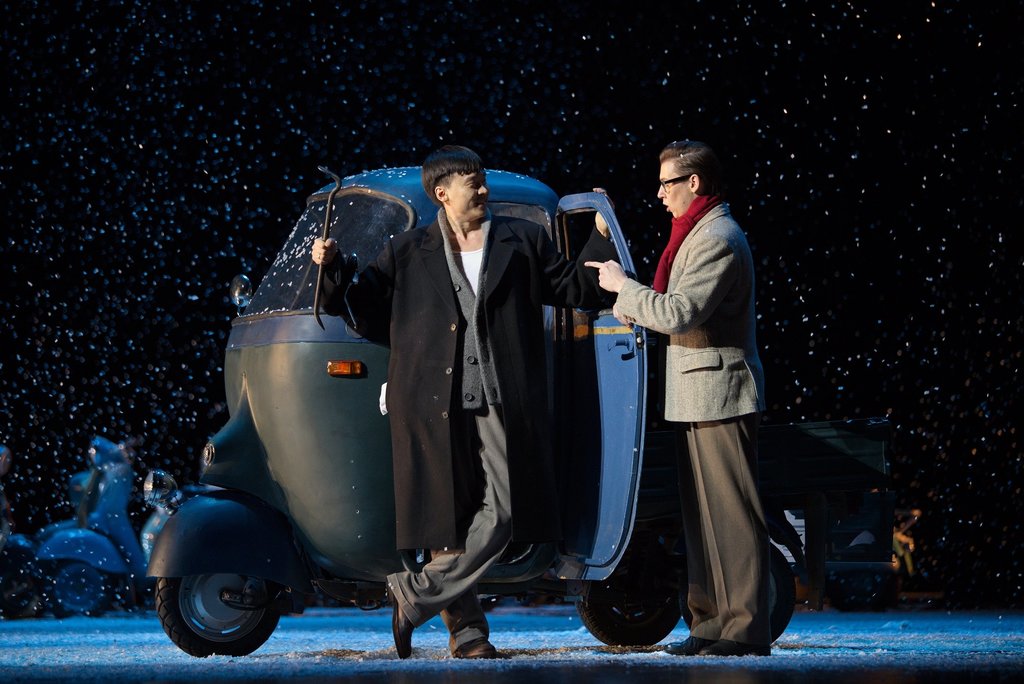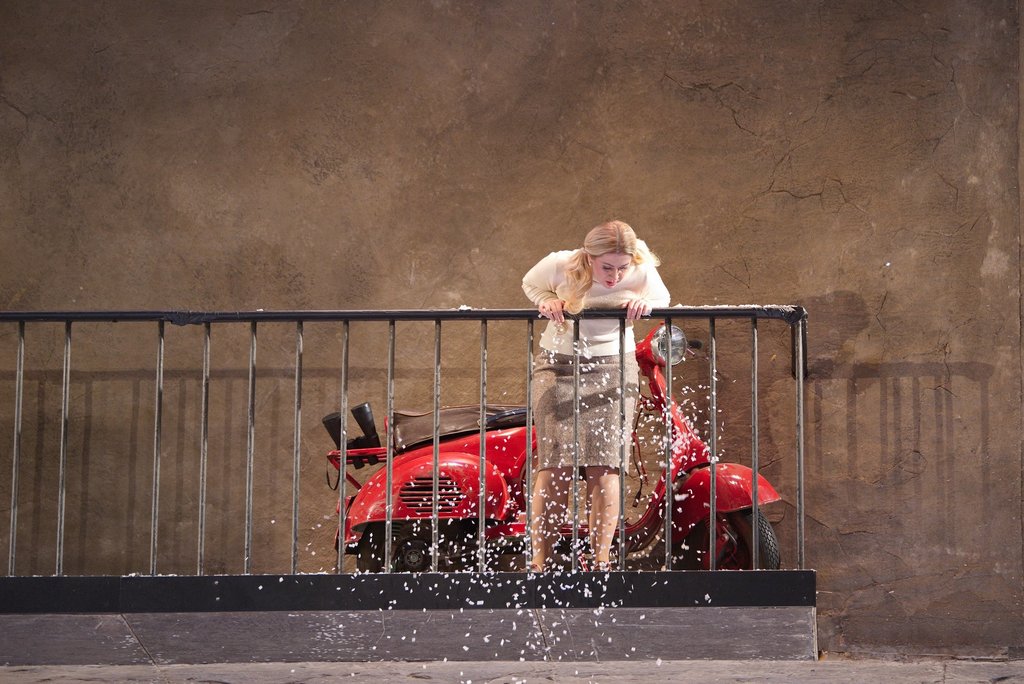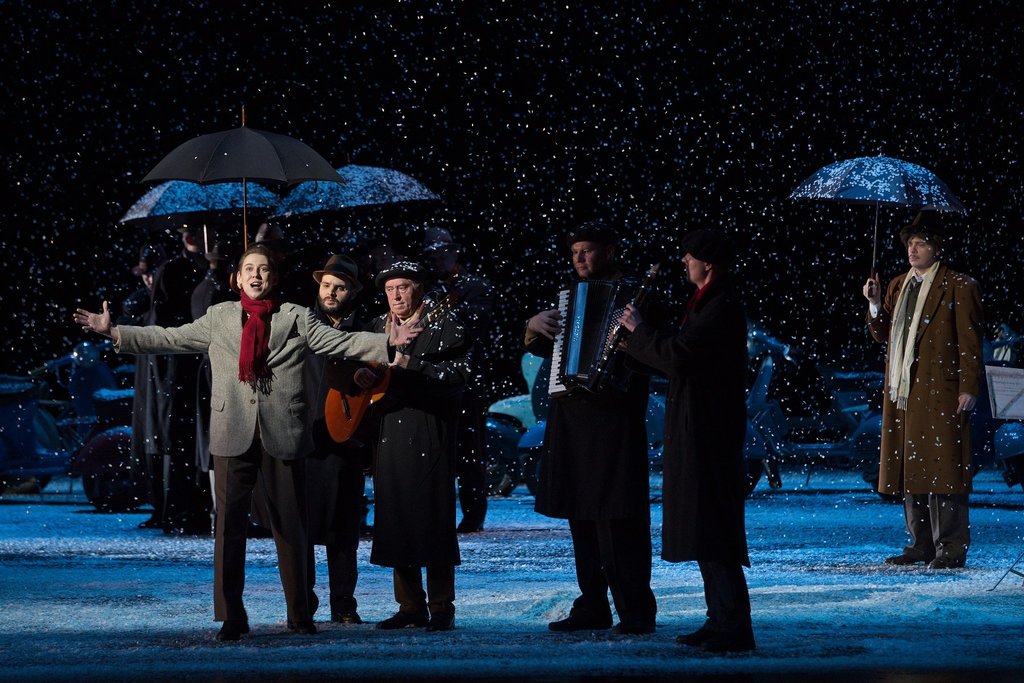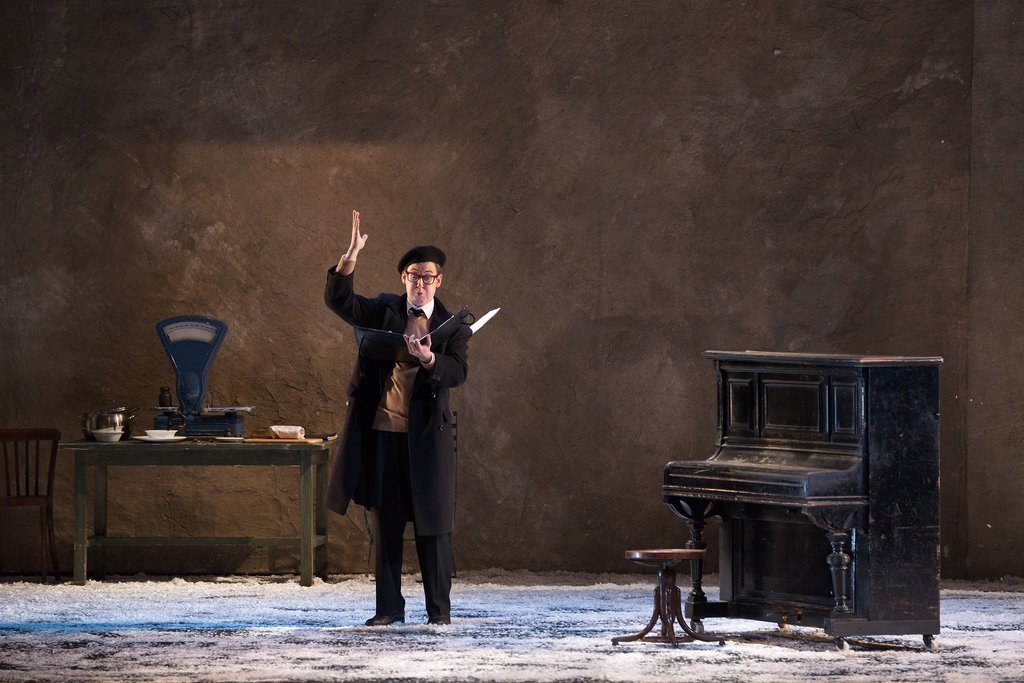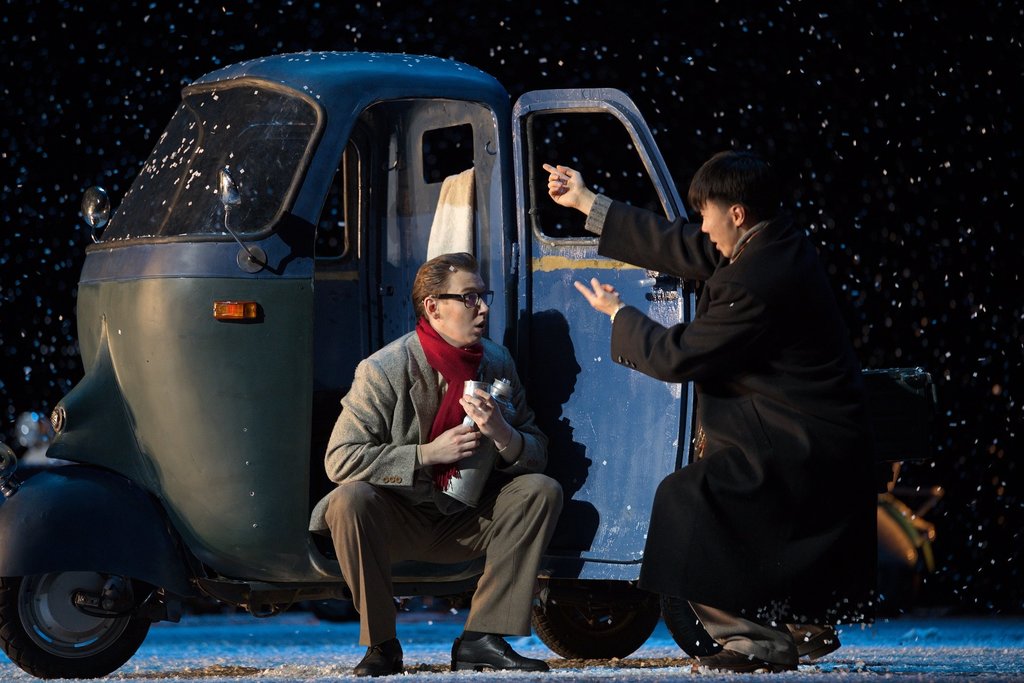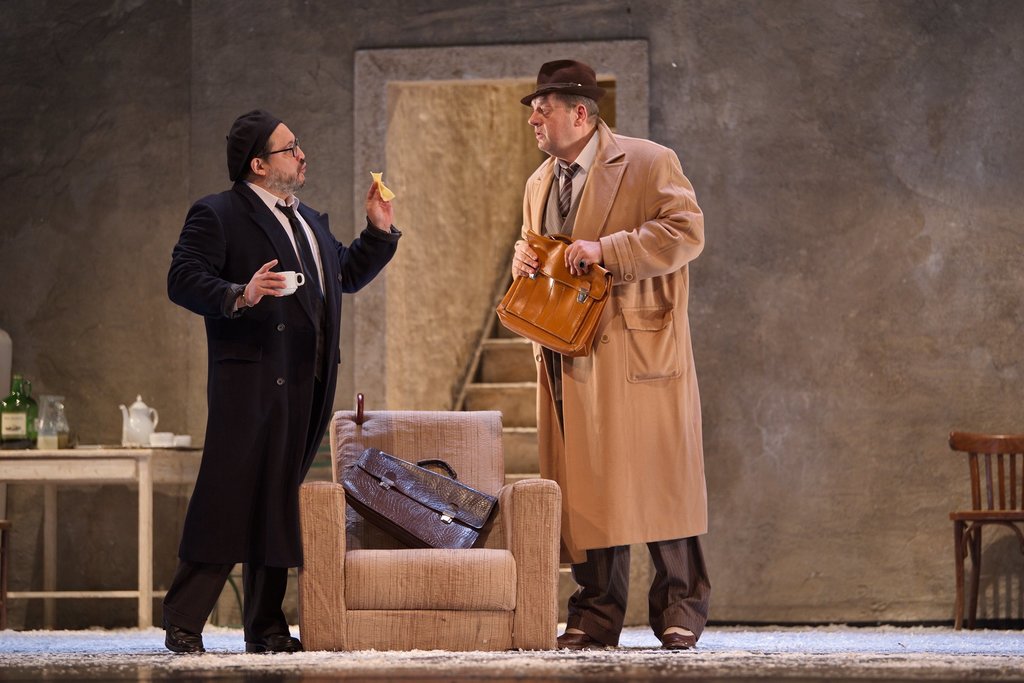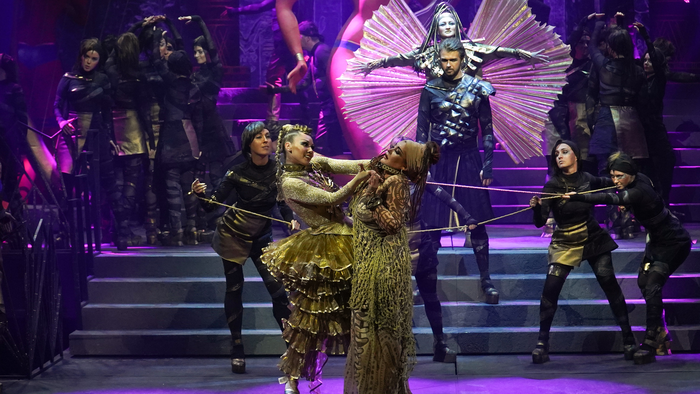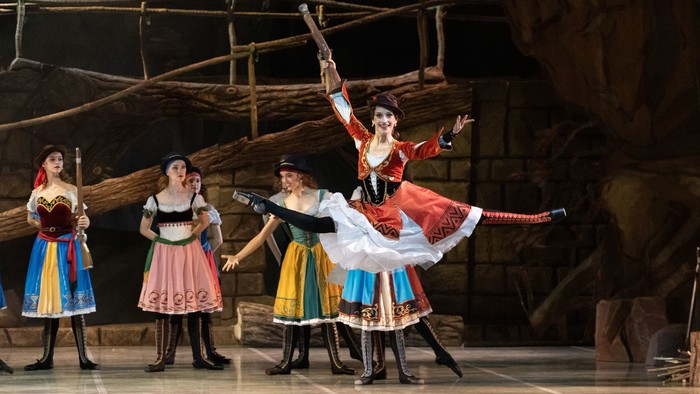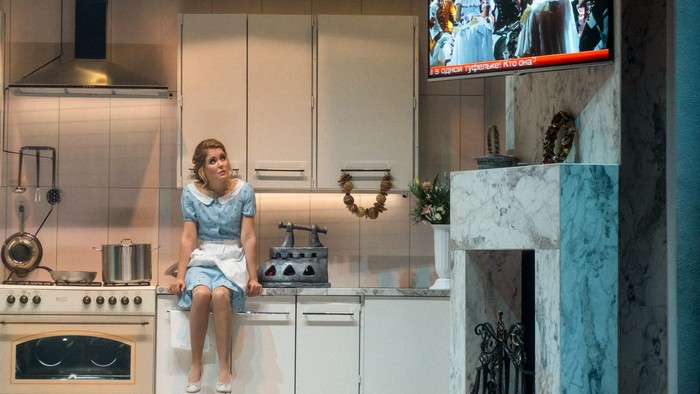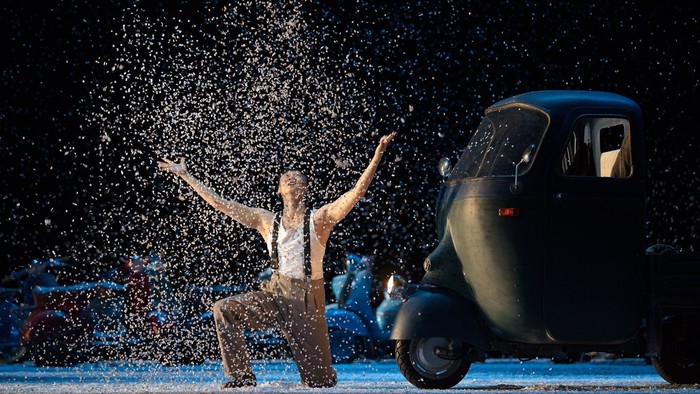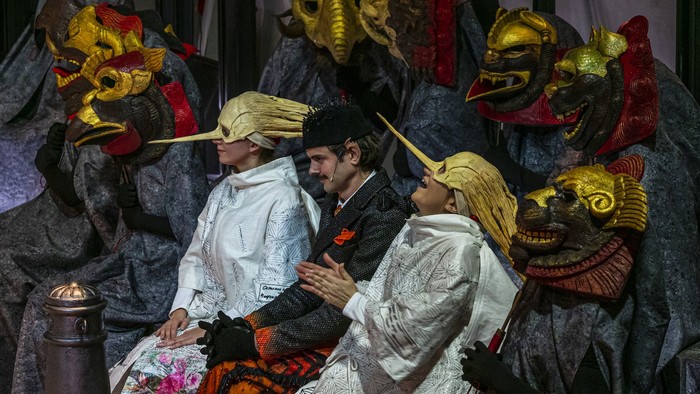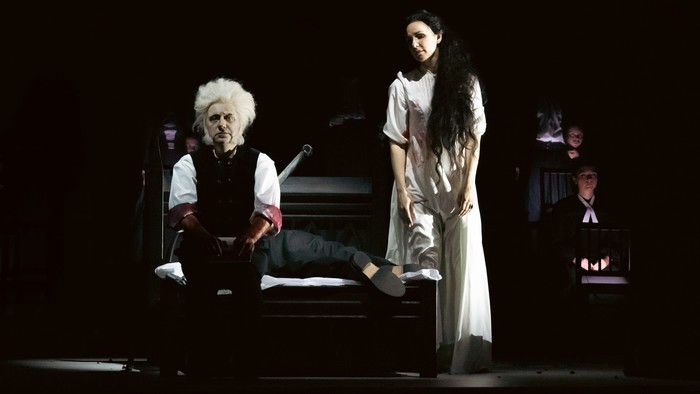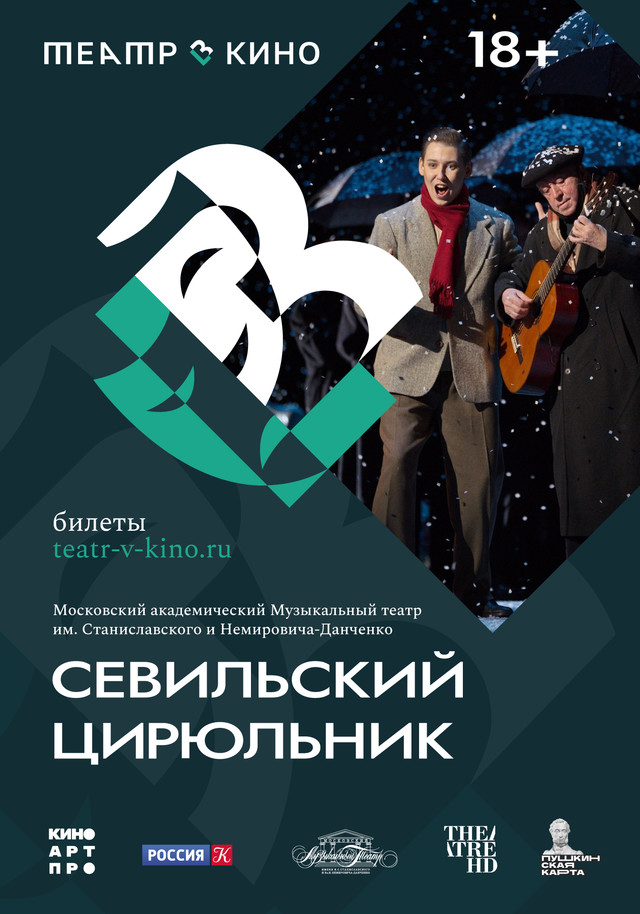
Il Barbiere di Siviglia
Севильский цирюльник
The action of the opera is transferred to Italy in the middle of the last century. Instead of crinolines and wigs, the characters wear jackets, raincoats and business suits and ride around the stage on motor scooters.
Actors
Crew
Director
Aleksandr Titel
Set and costume designer
Vladimir Arefiev
The action of Il barbiere di Siviglia is set…no matter where and when indeed. In Beaumarchais’ stage directions one reads “old Spanish costumes”, Rossini moved the action to the XVIII century which was not old but rather contemporary for the writer. One of the famous productions went as far as to show Beaumarchais and Rossini’s characters as Turkish or Arabs. Though Italy is very kindred to this story. It is an immense pleasure to watch this pointless but full of true human stories narrative evolving in an ambiance of jauntily dressed silent passers-by, neighbours chewing their pasta, a whole herd of rare motorbikes and worn-out furniture that would fit quite well into one’s parents’ apartment. The classical Spanish story is not set in sunny jolly festal Spain but in snow-covered Italy from Euronews and Italian neo-realistic films…
ACT ONE
We do not know exactly where this story take place. Beaumarchais assured us that it was in Seville, but his contemporaries supposed that the characters were too French (it was not surprising because they spoke French!). As for the heroes of Rossini’s opera, they are certainly Italians. Ardent passion makes Count Almaviva forget about the cold. He is in love with Rosina and serenades her. However, she seems to be sleeping and not hearing
the song. Who can help Almaviva? Of course, his old acquaintance Figaro, who knows all the town’s secrets. He explains to Almaviva that Rosina is Dr.
Bartolo’s ward. Fortunately, Figaro is a general factotum to the Bartolo household and enjoys easy access to the house. Almaviva starts to sing again. Rosina joins the song, but she is interrupted before she can respond. Dr. Bartolo hurries to the notary. He loves Rosina too and plans to marry her. Almaviva and Figaro understand that they can’t waste time. Rosina is charmed by the ardent and courteous youth who calls himself Lindoro. Probably Figaro knows something about the stranger. By the way, her letter to Lindoro is ready. Don Basilio, the music teacher, warns Bartolo that Count Almaviva, who is looking for Rosina, has arrived to the city. Basilio suggests slander as the most effective means of getting rid of Almaviva. Almaviva arrives disguised as a drunken soldier, billeted to Bartolo’s house. He enters, despite all the protestations. A scandal erupts, and the noise brings the civil guard to the house. Soldiers arrest Almaviva, but he secretly reveals his identity to the officer is immediately released.
ACT TWO
Almaviva returns to Bartolo’s house, this time disguised as Don Alonso – a music-master replacing the indisposed Don Basilio. To gain Bartolo’s trust, he reveals that he has intercepted a note from Almaviva to Rosina. Bartolo is glad and does not pay attention to Don Alonso’s suspicious resemblance to a rowdy soldier. Rosina is more observant and recognizes Lindoro. The «music lesson» begins. Figaro arrives to shave Bartolo. All is going to plan until Don Basilio unexpectedly appears. He seems unaware of his illness. Only friendly advices (and especially the Count’s money) make him to go home. Despite Figaro’s attempts to interfere, Bartolo notices that Rosina and her teacher are busy not only with singing. «Don Alonso» is driven out.
Bartolo decides not to postpone the marriage. He sends Don Basilio for a notary. Then he shows Rosina her letter to Lindoro, as proof that he is in league with Almaviva. Heartbroken and confused, Rosina agrees to marry Bartolo. A thunderstorm passes. Oh, what a terrible and saving storm!
Figaro and Almaviva climb up a ladder to Rosina’s balcony. Rosina is furious until Almaviva explains all. Now she can marry her beloved. Basilio returns with the notary. By the use of threats and bribes, Figaro ensures that the notary actually marries Rosina and the Count. Bartolo arrives, but it is too late. He has no choice and joins the celebrations.
We do not know exactly where this story take place. Beaumarchais assured us that it was in Seville, but his contemporaries supposed that the characters were too French (it was not surprising because they spoke French!). As for the heroes of Rossini’s opera, they are certainly Italians. Ardent passion makes Count Almaviva forget about the cold. He is in love with Rosina and serenades her. However, she seems to be sleeping and not hearing
the song. Who can help Almaviva? Of course, his old acquaintance Figaro, who knows all the town’s secrets. He explains to Almaviva that Rosina is Dr.
Bartolo’s ward. Fortunately, Figaro is a general factotum to the Bartolo household and enjoys easy access to the house. Almaviva starts to sing again. Rosina joins the song, but she is interrupted before she can respond. Dr. Bartolo hurries to the notary. He loves Rosina too and plans to marry her. Almaviva and Figaro understand that they can’t waste time. Rosina is charmed by the ardent and courteous youth who calls himself Lindoro. Probably Figaro knows something about the stranger. By the way, her letter to Lindoro is ready. Don Basilio, the music teacher, warns Bartolo that Count Almaviva, who is looking for Rosina, has arrived to the city. Basilio suggests slander as the most effective means of getting rid of Almaviva. Almaviva arrives disguised as a drunken soldier, billeted to Bartolo’s house. He enters, despite all the protestations. A scandal erupts, and the noise brings the civil guard to the house. Soldiers arrest Almaviva, but he secretly reveals his identity to the officer is immediately released.
ACT TWO
Almaviva returns to Bartolo’s house, this time disguised as Don Alonso – a music-master replacing the indisposed Don Basilio. To gain Bartolo’s trust, he reveals that he has intercepted a note from Almaviva to Rosina. Bartolo is glad and does not pay attention to Don Alonso’s suspicious resemblance to a rowdy soldier. Rosina is more observant and recognizes Lindoro. The «music lesson» begins. Figaro arrives to shave Bartolo. All is going to plan until Don Basilio unexpectedly appears. He seems unaware of his illness. Only friendly advices (and especially the Count’s money) make him to go home. Despite Figaro’s attempts to interfere, Bartolo notices that Rosina and her teacher are busy not only with singing. «Don Alonso» is driven out.
Bartolo decides not to postpone the marriage. He sends Don Basilio for a notary. Then he shows Rosina her letter to Lindoro, as proof that he is in league with Almaviva. Heartbroken and confused, Rosina agrees to marry Bartolo. A thunderstorm passes. Oh, what a terrible and saving storm!
Figaro and Almaviva climb up a ladder to Rosina’s balcony. Rosina is furious until Almaviva explains all. Now she can marry her beloved. Basilio returns with the notary. By the use of threats and bribes, Figaro ensures that the notary actually marries Rosina and the Count. Bartolo arrives, but it is too late. He has no choice and joins the celebrations.
Language
Italian
Runtime
2 hours 35 minutes
2023
18+
#theatreincinems 2024/2027
Весь сезон
Nutcracker
“The Nutcracker” in the version of choreographer Vasily Vainonen and with original multimedia scenery is performed by artists of the legendary Vaganova Academy of Russian Ballet

The Night before Christmas
The fifth of Rimsky-Korsakov’s 15 operas, based on Nikolai Gogol’s story from the cycle “Evenings on a Farm near Dikanka”
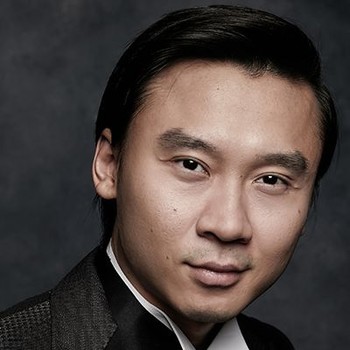



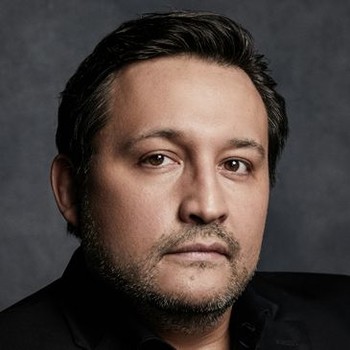

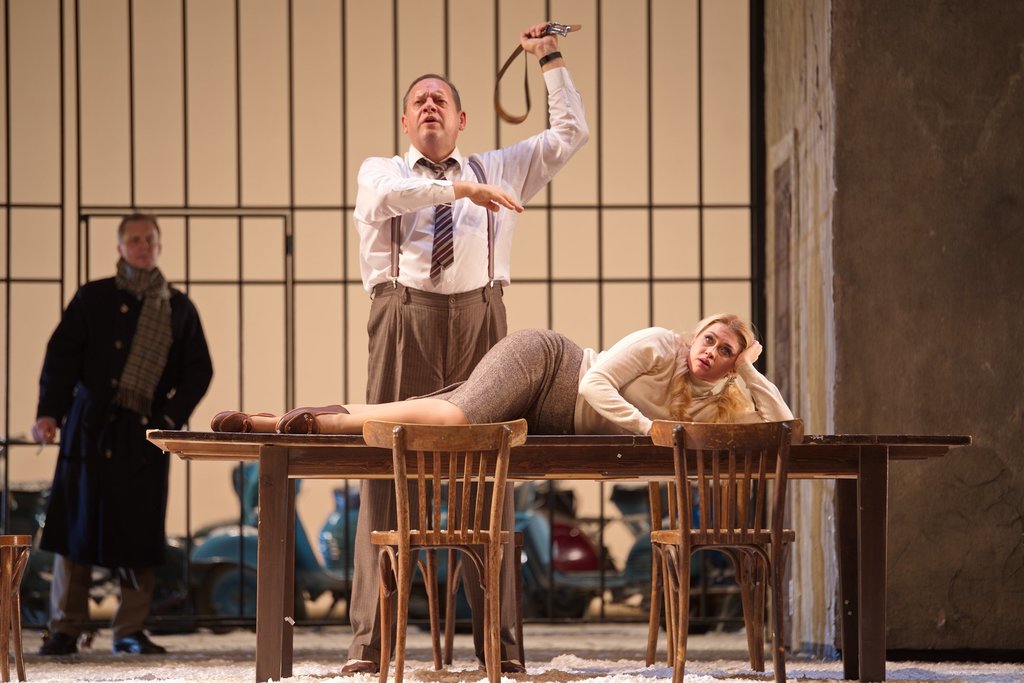
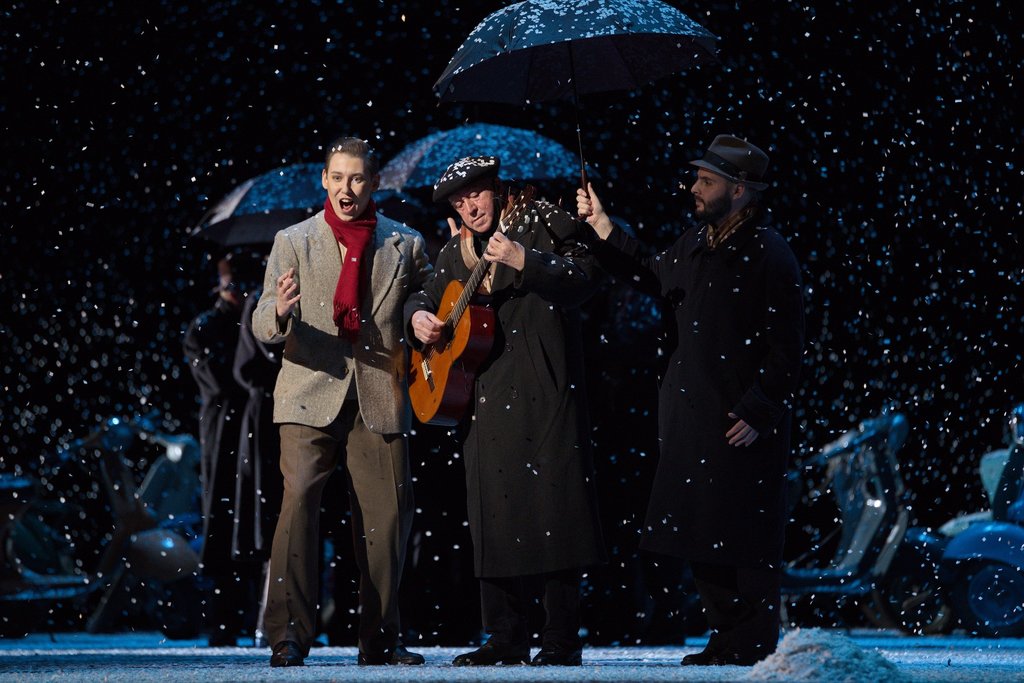
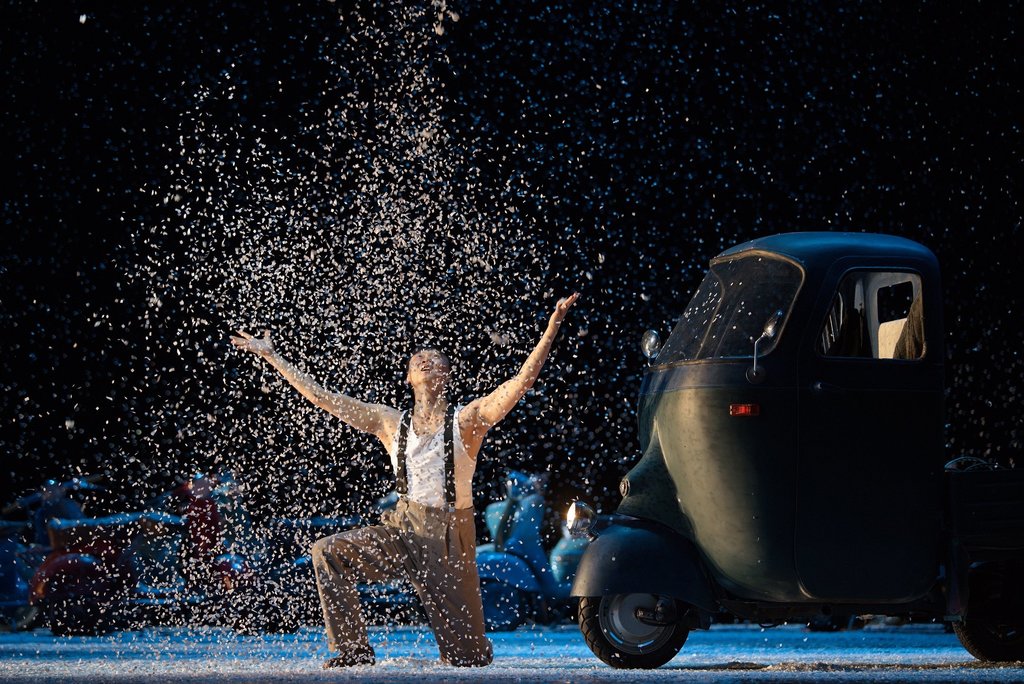
.jpg)
